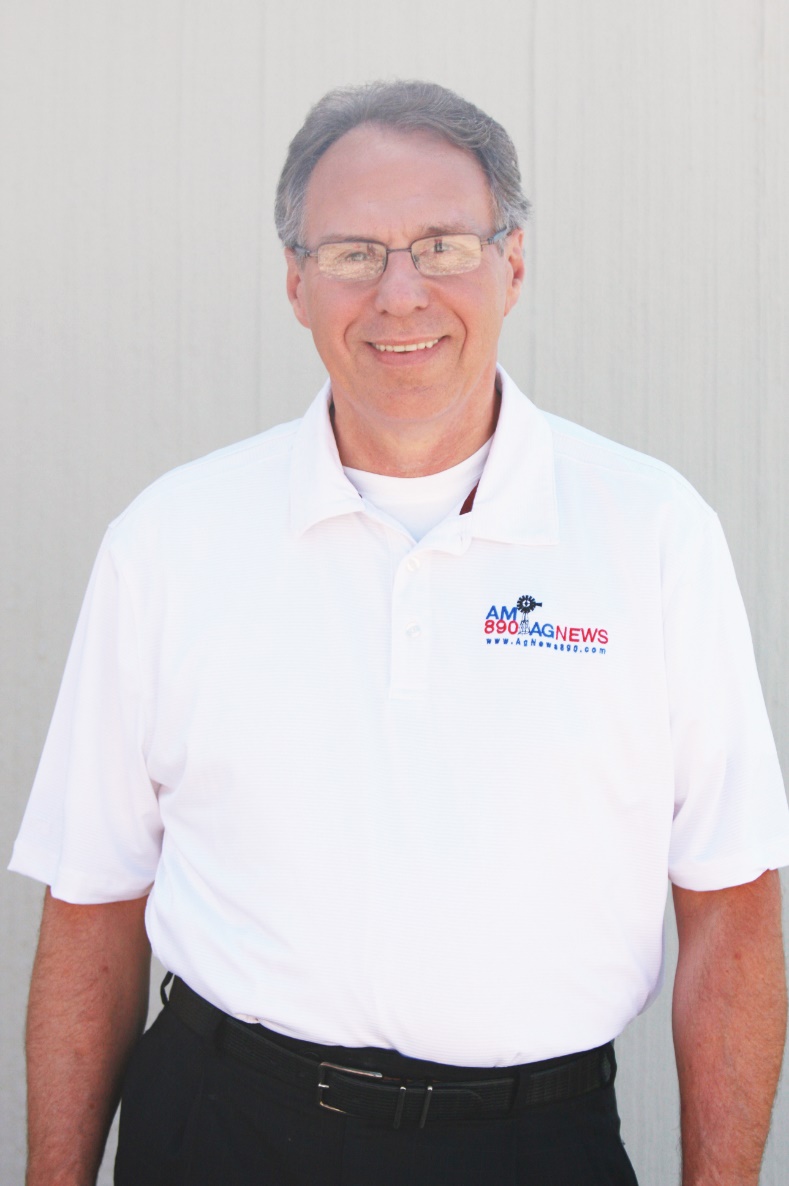 Mick Kjar (Farm Talk Radio Network, KQLX, Fargo, ND) claims he is of the Baby Boomer generation, growing up in the 50s and 60s with cows and corn in southeast North Dakota. “I spent my teenage years cultivating corn and getting chased by angry momma cows.” Mick recalls, “The early 60s was the heyday of top-40 rock and roll radio and coincidentally the tractor radio. So, as I spent hours upon hours in the corn field or making hay, I fell in love with radio. All I ever wanted was to be the guy on the radio.” Through the 70s, Mick was in rock and roll personality radio. “Those were great years for radio. Then with the 80s came satellites, consultants and cue cards. Radio was not as wild and creative as it once was. I realized that being a meteorologist on TV was where the fun in broadcasting seemed to be.”
Mick Kjar (Farm Talk Radio Network, KQLX, Fargo, ND) claims he is of the Baby Boomer generation, growing up in the 50s and 60s with cows and corn in southeast North Dakota. “I spent my teenage years cultivating corn and getting chased by angry momma cows.” Mick recalls, “The early 60s was the heyday of top-40 rock and roll radio and coincidentally the tractor radio. So, as I spent hours upon hours in the corn field or making hay, I fell in love with radio. All I ever wanted was to be the guy on the radio.” Through the 70s, Mick was in rock and roll personality radio. “Those were great years for radio. Then with the 80s came satellites, consultants and cue cards. Radio was not as wild and creative as it once was. I realized that being a meteorologist on TV was where the fun in broadcasting seemed to be.”
Mick spent the next five years working for the local NBC affiliate in Fargo and the American Ag Network while attending meteorology classes at North Dakota State University and University of North Dakota and completing correspondence courses to earn his meteorologist certification. He began doing farm news for TV and morning weather and news while serving as the Assistant Farm Director for the American Ag Network. He spent 10 years in both roles and 27 years as the morning meteorologist and Farm Director for the local NBC station and also CBS TV stations. During that time, he did morning weather for local radio stations, too. In 2007, Terry Loomis of KQLX approached Mick to do an afternoon farm show after the markets closed. “Sounded like fun to me! So, we launched Farm Talk at the beginning of 2008, and now nine years later, it is carried on several stations across North and South Dakota.” Mick continued, “In 2015, I started to feel the aches of age and decided that getting up at 2:30 in the morning and working 16 hours a day was no longer a good idea. So, I abandoned my TV career and focused on radio again.” Farm Talk is a two-hour show that airs from 1:00 - 3:00 p.m. with the first hour local and the second hour a network show. It consists of a series of five- to ten-minute interviews on farm topics ranging from agronomy and animal health to advocating for agriculture, farm policy and politics. “Although we stay away from arguing politics on the show, I occasionally interview politicians about their perspectives on agriculture. Every job has its challenges and this job’s challenge is finding seven to eight people every day to fill two hours of radio.” Mick concludes, “I get to do that every day, day after day, all year long. I am not your typical radio talk show host. I feel that what I say is not as important as what my guests say. My audience of farmers seem to like that formula. All I ever wanted was to be the guy on the radio. Luckily, I still am.”
